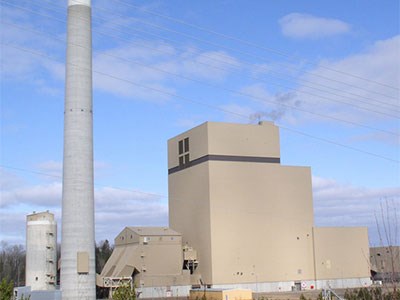As the transition to renewable energy ramps up in North America, Bill McLean will likely be getting a lot of phone calls. He’s the Director for Biomass and Power at WSP Canada (formerly Genivar) and works out of the Thunder Bay office.
“There aren’t a whole lot of biomass specialists (in the world), and we happen to have a few of them here in Thunder Bay,” he said. “If somebody has a project related to biomass, generally we hear about it or they find out about us, and we get connected and work on the project.”
McLean credits the long tradition of forestry in Northern Ontario for giving his team a deep background in biomass, and feels Thunder Bay makes for a logical “centre of excellence” within WSP for the technology.
“We’re surrounded by paper mills where (biomass) utilization actually started. Of course, half the paper mills are now gone, but the technology for converting woody biomass into electricity has been here in Thunder Bay for a long time.”
The lengthy history of biomass in Northern Ontario, combined with some aggressive regulatory moves by the province to phase out coal power, has given McLean and his team a lot of practical experience with a technology that still seems novel to this part of the world.
With Ontario Power Generation converting the coal fired thermal plants at Thunder Bay and Atikokan, the utilization of biomass for power generation is moving beyond the industrial sector pulp and paper mills. One regional example of the expanding biomass power generation sector is the new 10-megawatt Becker Cogeneration plant, located in Hornepayne, which recently came online. In addition to creating power that can be sold to the provincial grid, the plant also feeds steam to the adjacent Haavaldsrud lumber mill, to be used for heating the building and for drying lumber. WSP acted in the role of Owner’s Engineer during the implementation of this project.
“I understand that this is the first biomass power plant in Ontario producing power with just biomass,” said McLean. “So it helps the local saw mill to be more cost competitive because now they’re using steam at a less expensive cost than it was to use propane in their kiln.”
WSP also works on a number of projects in the U.S., including a longstanding 30-year relationship with Minnesota Power. The utility currently has two biomass plants in operation.
“When they want to make changes,
upgrade, or look at an operation’s modifications, they’ll come to
the office in
Thunder Bay.”
There’s a great deal of focus on the U.S. market in general, where McLean expects to see a growing demand there for biomass technology in the coming years.
“In the United States, many states have decreed that by a certain date they’ll be at a certain level of renewable energy generation,” he said. “So we’re seeing opportunities now in a lot of these states where they can’t quite figure out how to get there. We’re involved in a lot of those projects with different utilities.”
The expanded international reach and heightened profile offered by the new WSP organization is something McLean feels will be a big help moving forward in this new era, by providing a huge well of knowledge related to energy systems that he and his colleagues are able to draw upon.
“There’s a WSP global energy committee with offices in Sweden, China, South America, and Germany, and our office here in Thunder Bay is part of it as well.”
All and all, McLean said he’s pretty
pleased with how the changes at the company are turning out and that
plans are in motion to bolster the amount of
biomass expertise at
WSP situated in Thunder Bay.
“We’re going to be keeping the specialization here in Thunder Bay. We’re trying to grow it a little more if we can even at this moment (and) there are things in the WSP organization, I think, that are going to help spread the word, that if you've got these (biomass) power plants give us a call. We’re the guys that will be able to help you out.”




